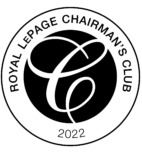What does a home inspector look for?
What does a home inspector look for?
Scheduling a home inspection is an often crucial step in the home buying process. No matter how nice a home looks to the untrained eye, there are sometimes nasty surprises and unforeseen costs that can easily be avoided through an inspection. During the global pandemic, it became less common to hire inspectors due to sellers’ demands, social distancing and the robust “Seller’s market”. But now we’re starting to see a resurgence, and for good reason. In this blog, we’ll cover some of the significant focal points in a home inspection.
Structural
There are many kinds of damage that can happen to the structural features of a home, especially in our diverse climate. The winter’s cold can have a significant impact year over year, and the large melts and heavy rainfall can both cause water damage. Inspectors will check the roof structure and foundation for any immediate or potential concerns, as far as it’s safe for them to do so. They will check the ceilings and walls (both interior and exterior) ensuring that there are not any cracks, weak points or other hazards impacting the structural integrity.
Electrical
Home inspectors will check the electrical systems to ensure that wiring is in proper working condition and that there are no obvious hazardous issues. They are unable to check wiring hidden behind walls or ceilings, as it would be destructive to the home. Inspectors will also ensure that the smoke alarms and carbon monoxide detectors are working properly.
Plumbing / Water
Checking for sources of potential water damage can be an extensive process. This is because there are numerous places from which it can originate, both in and around the home.
During an inspection, inspectors will check the pipes and plumbing systems for cracks, rust, and any other current or potential sources of damage. Inspectors will look for any issues or inconsistencies with the water pressure, as they could point to other hazards throughout the home. They will also look at any cabinets, walls, floors and ceilings which surround the appliances and systems to verify that no damage has been caused over time. Inspectors will ensure that the drainage is working properly, otherwise, it could pose a potential flood hazard. They will point out any deficiencies in the type of piping, both for supply and drainage. If there is a sprinkler system installed on the property, they will likely recommend that you have someone operate them to verify that there aren’t any leaks or blockages.
Mechanical
Home inspectors will check the operation of furnaces, air conditioners (weather dependent) and other mechanical equipment to assess their condition, and potential for maintenance or repairs. Sometimes inspections of this type of equipment will result in a recommendation for further investigation by a qualified HVAC contractor.
Property
Your inspector will want to take a look at the driveway and any walkways or paths surrounding the home. They will also check any outdoor structures like porches or gazebos for damages, breaches of code or potential hazards they may pose. On the surrounding property, inspectors will likely take a close look at any standing or running water, as it could pose issues or come with maintenance responsibilities for the homeowners.
Limitations
As with anything, there are limitations to an inspector’s responsibilities and capabilities. As previously mentioned, inspectors generally are unable to check plumbing or wiring hidden behind walls, ceilings or floors if it would be destructive to the home or property. This means that they will not always be able to identify potential hazards, such as asbestos, because it may be hidden from their line of sight. They also possess the right to refuse any unsafe work, including things like up-close roof inspections. It is not uncommon for an inspector to refer a buyer to a component-specific contractor for further detailed investigation.
Any questions?
At Royal LePage Team Realty, our agents have access to a vast network of industry professionals — such as home inspectors — to help streamline your buying process. If you have any further questions about home inspections, don’t hesitate to reach out!



The trade marks displayed on this site, including CREA®, MLS®, Multiple Listing Service®, and the associated logos and design marks are owned by the Canadian Real Estate Association. REALTOR® is a trade mark of REALTOR® Canada Inc., a corporation owned by Canadian Real Estate Association and the National Association of REALTORS®. Other trade marks may be owned by real estate boards and other third parties. Nothing contained on this site gives any user the right or license to use any trade mark displayed on this site without the express permission of the owner.
powered by webkits

